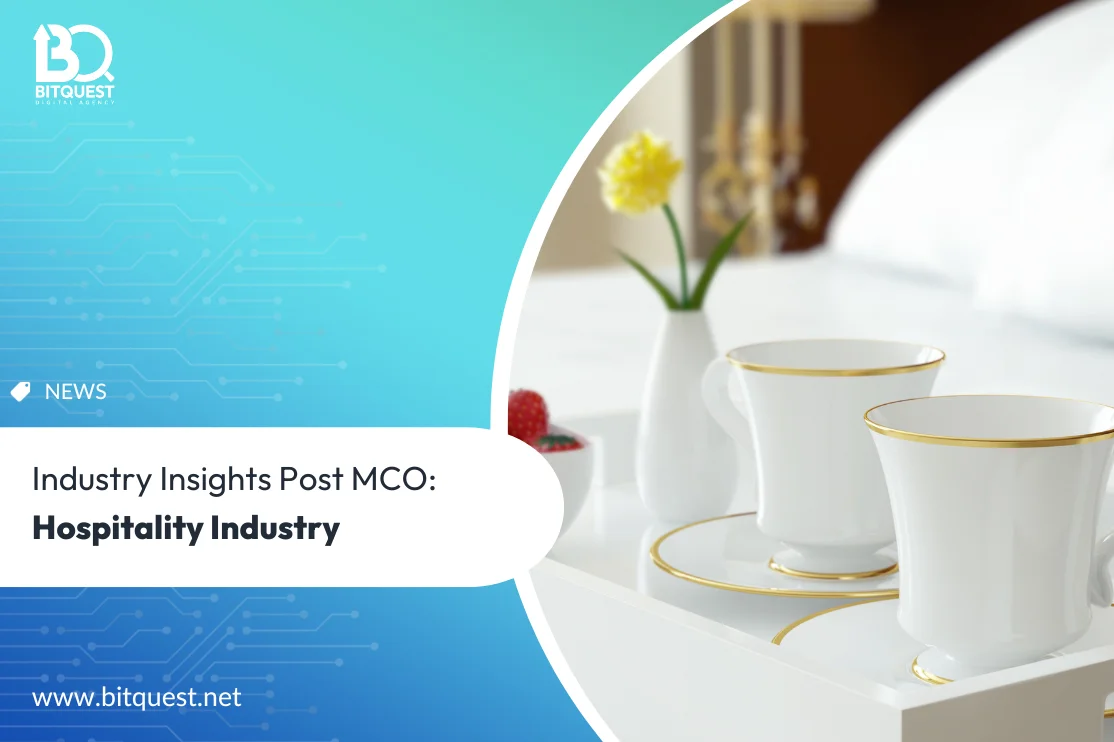Industry Insights Post MCO: Hospitality Industry

6 December 2023
When we talk about the impact of the pandemic on industries, it is unanimously agreed that the hotel and tourism industry is undeniably one of the hardest-hit sectors during the COVID-19 epidemic. When the cases first came to light, travel was one of the first things that were prohibited. Hence, even before the MCO was in place, businesses had already started to feel the impact of rising cases around the world. It gave rise to travel fears. Although hotel services are listed under essential services that are allowed to operate during the MCO, hotels were prohibited from accepting new bookings. This, coupled with massive room cancellations, effectively brought the industry to its knees.
Unlike other businesses, the hotel industry would not benefit from expanding to online services during these times. A fact that is proven by only a meager 2% increase in the number of hotel operators shifting their business operations online during the MCO.
Looking for alternatives
In a bid to innovate and remain connected with the audience, hoteliers have started to innovate the way they connect with the audience by adapting to the changes this pandemic has brought. Without the option of accepting new bookings, hotel operators have shifted focus to food and beverage. They have been using various methods, from cooking demonstrations to food delivery from their restaurants. They are doing everything to remain relevant to consumers, who are locked inside their homes due to the MCO's restrictions.
Relevancy of Content
With the hotel stays out of the questions, hotel operators have had to work on alternatives for their social media postings to keep the conversation going. From cooking demonstrations by their in-house chefs and riding on the latest trends like the Dalgona coffee or BTS trends, giving a shout-out to the front-liners, and holding social media contests. Almost all hotel operators are using social media to stay on top of the mind of their audience during the MCO.
Change in the online sales channel
Unlike other industries, the hotel industry would not be able to incur any benefits from their online sales channel. Hence, we see a shift in their strategies. The e-commerce platforms they are on have also changed correspondingly, with more hopping on food delivery platforms and WhatsApp to reach the consumers. FoodPanda saw an increase of 11% in its online sales channel of Hotels on Facebook. Whatsapp came out as a significant winner on Instagram when it comes to online sales channels showing a 12% increase.
Source: Figures and facts adapted from Adqlo's Life-After-COVID19-Malaysia-Retail-Industry-Digital-Report.
Things have become pretty quiet in the hotel industry as it battles heavy losses in the wake of Covid-19. The few industry players who have remained active on social media are exploring different business strategies to stay afloat in these trying times. However, many experts have predicted a lot of changes for the hotel industry-
• Vacation rentals and Air BnB might continue to see losses due to no authentic hygiene program. In comparison, hotels follow through with the safety and cleaning protocols that people require.
• Rigorous sanitation and cleanliness need to be maintained by every hotel to entertain guests.
• Experts are predicting a drop in hotel rates to boost business. Many could term this a necessity; due to the economic depression, this pandemic has caused for the people.
The hotel industry goes hand in hand with the travel industry, and both need to promote each other to stand on its feet again. BitQuest is closely following updates and changes in industry trends.
Subscribe to our mailing list to receive every update.
